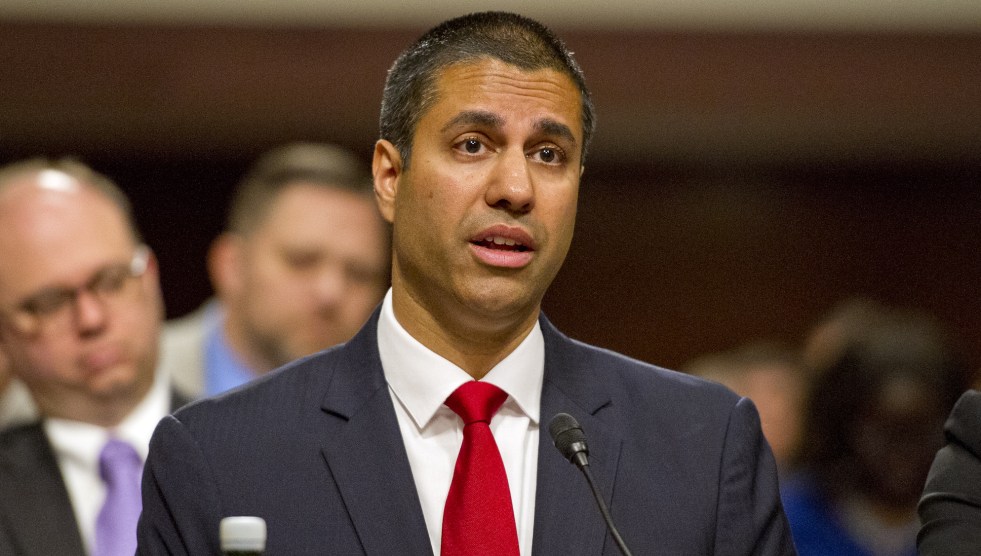
Ron Sachs/CNP via ZUMA Wire
The chairman of the Federal Communications Commission rebuked the president during a visit to Congress on Wednesday. A recent tweet by the president highlighted the FCC’s pivotal role in a merger that could launch the pro-Trump Sinclair Broadcasting company into over 70 percent of American households. Less than a day after President Trump tweeted that it was “sad and unfair that the FCC wouldn’t approve the Sinclair Broadcast merger with Tribune,” the agency’s chairman, Ajit Pai, who was appointed by Trump in January 2017, told Congress that he “stands by” the decision the agency made to send the proposed merger between Sinclair and Tribune Media to an administrative judge for review.
So sad and unfair that the FCC wouldn’t approve the Sinclair Broadcast merger with Tribune. This would have been a great and much needed Conservative voice for and of the People. Liberal Fake News NBC and Comcast gets approved, much bigger, but not Sinclair. Disgraceful!
— Donald J. Trump (@realDonaldTrump) July 25, 2018
FCC commissioners testified Wednesday in front of the the House Subcommittee on Digital Commerce and Consumer Protection. Rep. Frank Pallone (D-N.J) asked about the tenor of Trump’s tweet and the president’s suggestion that Sinclair would be a “much needed Conservative voice for and of the People.”
“The only thing that I find disgraceful,” Pallone said, “is that the president is still trying to undermine the integrity of dedicated journalists while blatantly trying to enrich his friends and amplify his message at the expense of local news across the country.”
Pai, however, responded by sticking with claims he made during his November confirmation hearing that for anything put before him, he would stick to the responsibilities of his office as designated by Congress. “So long as I have the privilege of serving as the chairman of the FCC, I’m going to find the facts, I’m going to follow the law and I’m going to call them like I see them,” Pai said.
Sinclair’s proposed merger hit a major roadblock in July, when the FCC declared that it was “unable to find, based upon the record before us, that grant of the applications would be consistent with the public interest.” Instead, Pai and the other commissioners decided that the merger must be reviewed by an administrative judge.
When asked by Pallone if the commission would protect the investigation from any influence from the Trump administration, however, Pai punted the question to the general counsel’s advice to not comment on the open investigation, saying it was now under the purview of the administrative judge.
But Commissioner Jessica Rosenworcel, the FCC’s sole Democrat, said that the agency should be open to further investigation. “I would point out,” Rosenworcel said, “that we have raised issues about the candor of this company before the FCC and I think those are serious character qualification.”












